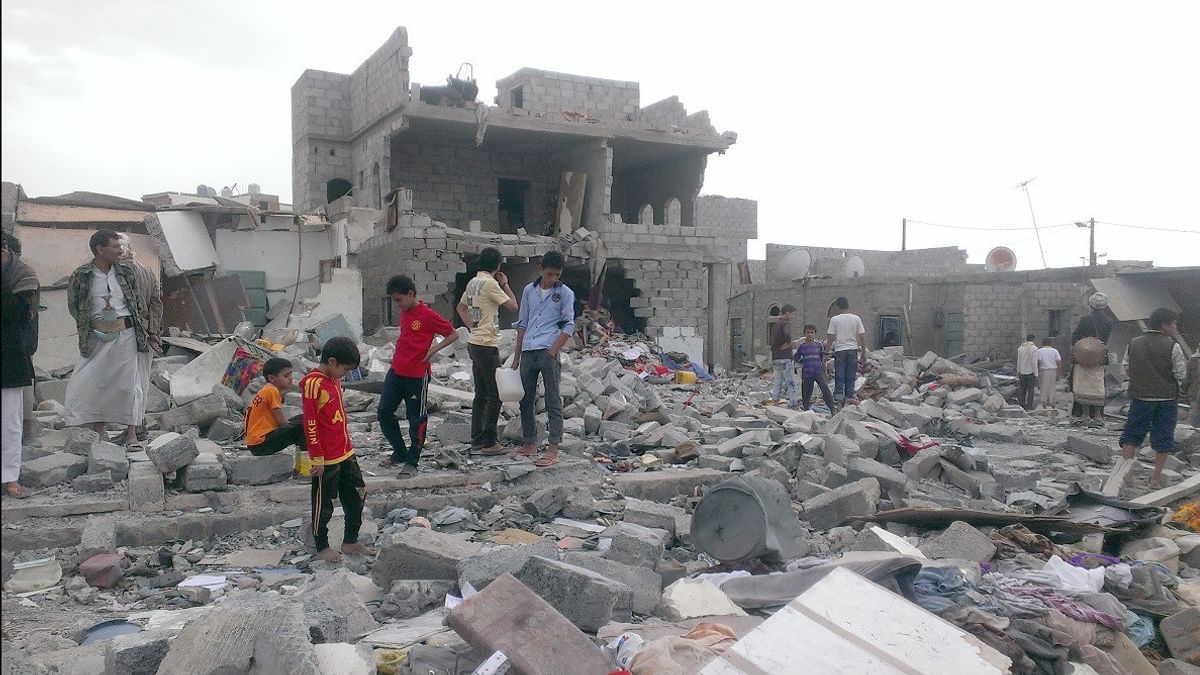JAKARTA - Yemen's seven-year war will claim 377.000 lives by the end of this year, through both direct and indirect impacts, the UN agency estimated in a report published Tuesday.
Nearly 60 percent of the deaths will be due to indirect impacts such as lack of clean water, hunger, and disease, he said, suggesting that fighting would directly kill more than 150.000 people.
Most of those who died as a result of the indirect effects of war were "young children who are especially vulnerable to malnutrition and malnutrition", the UN Development Program (UNDP) report said.
"In 2021, a Yemeni child under the age of five dies every nine minutes due to conflict," the report quoted France24 of AFP as saying.
The Saudi-led coalition intervened in Yemen in early 2015 to prop up the government, after Iran-backed Houthi fighters seized the capital Sanaa months earlier.
The fighting has since had a "disastrous effect on nation-building", the report said.
UNDP has warned in the past that the war in Yemen, already the region's poorest country, has pushed its development back more than two decades.
The Yemen war is often labeled as the world's biggest humanitarian disaster. Projecting the impact of continued fighting in the future, UNDP warns some 1.3 million people in total will die by 2030.
"Most of those deaths will occur, due to the second-degree impact the crisis has on livelihoods, food prices, and deteriorating basic services such as health and education."
If the war stops now, UNDP says, there will be "hope for a brighter future in Yemen" which it says can reach middle-income status by 2050. For now, though, "the situation continues to move in a downward spiral".
The escalating fighting, including tank battles and regular bombardment by fighter jets and drones, has destroyed even the most basic infrastructure in some areas.
In recent weeks fighting has escalated on several fronts, mostly near the strategic city of Marib, the last major bastion of the internationally recognized government in Yemen's oil-rich north. Thousands of rebels and pro-government fighters have died fighting for the city.
The United Nations Refugee Agency, in separate comments Tuesday, said it was "deeply concerned about the safety and security of civilians in Yemen's Marib Province, including the more than one million people estimated to be displaced".
Around 40.000 people have been forced to take refuge in Marib since September, said UNHCR spokeswoman Shabia Mantoo in Geneva, Switzerland.
"Health conditions such as acute watery diarrhea, malaria, and upper respiratory infections are common among the new refugees," he said.
SEE ALSO:
The Houthis this month also seized large swathes of territory south of Hodeida, a Red Sea port where the warring parties agreed to a 2018 ceasefire after loyalist forces withdrew.
The UNDP Administrator Achim Steiner said, "millions of Yemenis continue to suffer from the conflict, trapped in poverty and with little chance of finding jobs and livelihoods".
More than 80 percent of the population of about 30 million are in need of humanitarian assistance, the report said, while "the economy is on the verge of collapse". "Yemen is the world's worst and largest humanitarian and development disaster, and it continues to get worse."
The English, Chinese, Japanese, Arabic, and French versions are automatically generated by the AI. So there may still be inaccuracies in translating, please always see Indonesian as our main language. (system supported by DigitalSiber.id)


















